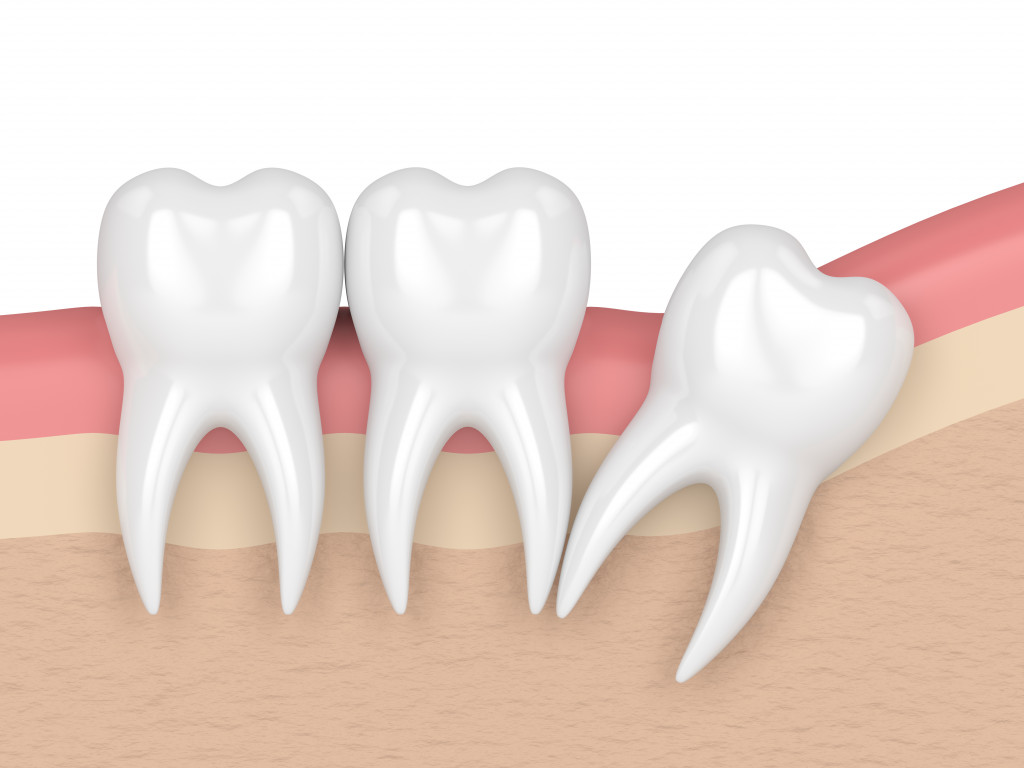- The last molars that typically come between the ages of 17 and 25 are wisdom teeth.
- Early humans had larger jaws and teeth, which needed additional molars to properly crush and grind their food.
- Some common problems caused by wisdom teeth include crowding, infection, cysts, and partial eruption.
- Consult your dentist to determine if the removal procedure is necessary.
- To recover quickly, make sure to practice good oral hygiene and follow the instructions given by your dentist after the extraction.
You may wonder about your wisdom teeth if you are in your early 20s. These teeth are the final set of molars that grow in the back of your mouth. Wisdom teeth typically grow between the ages of 17 and 25. While not everyone will have them, those who do may encounter difficulties. That’s why this blog post will discuss all you need to know about wisdom teeth to prevent tooth problems.
Why do you have wisdom teeth?
Human ancestors needed wisdom teeth to chew on hard foods. Early humans had more enormous jaws and teeth, requiring extra molars to crush and grind food. Today, the modern diet consists of softer and more cooked food, which is why wisdom teeth can cause problems. This is because there’s very little room for these extra molars. Some might grow normally, but others will become impacted or fail to emerge at all.
What are some wisdom teeth problems?
Not all wisdom teeth might cause problems, but some can impact oral health. Wisdom teeth can cause different issues depending on their positioning. Some of the most common problems are:

a. Crowding
When wisdom teeth don’t have enough space to break through, they can get pushed against other teeth, causing them to crowd and overlap. This can lead to crooked teeth, gum inflammation, and even cavities.
b. Infection
When wisdom teeth are forced against the jawbone or other teeth, it can cause bacteria to form deep inside the gums. This bacteria can lead to infection and some severe pain. Some symptoms include bleeding, swelling, and bad breath.
c. Cysts
Cysts are fluid-filled pockets that can form around wisdom teeth and grow large if left untreated. These cysts can damage the jawbone and nearby teeth roots, leading to pain and other dental problems. Some cysts can even become cancerous. This is why seeking treatment early is essential if you experience any of its symptoms.
d. Partial eruption
If the wisdom tooth is only partially erupted, it can create a gap between the gum tissue and the tooth. This space can trap food debris and bacteria, creating an ideal environment for infection. If left untreated, this can cause gum disease and other issues.
Should I remove my wisdom teeth?
You should consult with your dentist if you experience any dental discomfort or pain due to your wisdom teeth. Your dentist can tell you whether or not your wisdom teeth need to be removed. Additionally, not all wisdom teeth need to be removed. Some people can keep their wisdom teeth if they do not cause any harm.
Some people also opt to have their wisdom teeth removed as a precautionary measure. This is especially helpful if your dentist finds that the wisdom teeth are not positioned correctly, as this can help prevent future complications. They can also be removed if they’re causing overcrowding or have partially erupted. To know if removal is the right option, it’s best to consult your dentist.

What should you expect during wisdom teeth removal?
If your dentist recommends wisdom teeth removal, don’t worry, it’s a standard procedure done under anesthesia. A licensed oral surgeon will make a small incision in the gum tissue to access the wisdom teeth. Afterward, any stitches necessary will be placed to help heal your gums. You may experience some swelling, pain, and bleeding after the extraction, which is normal. You will also need to take some time off to rest and allow your jaw to heal.
What are some tips for wisdom teeth recovery?
After wisdom teeth removal, you must be careful with your oral health. Rinse your mouth gently with salt water after meals, avoid using straws, and try to eat soft foods to prevent irritation. Your dentist will also advise you on the proper pain relief medication. They may also prescribe you an antibiotic to help prevent an infection. Follow your dentist’s instructions carefully to ensure a quick and safe recovery.
As you can see, wisdom teeth play an essential role in our dental health, but in some cases, they might cause problems. You should consult your dentist if you experience discomfort or feel like your wisdom teeth are causing trouble. Remember, maintaining good oral hygiene is vital in keeping your teeth, and regular checkups with your dentist can prevent dental problems. Understanding all you need to know about wisdom teeth ensures your dental health remains in top condition.






